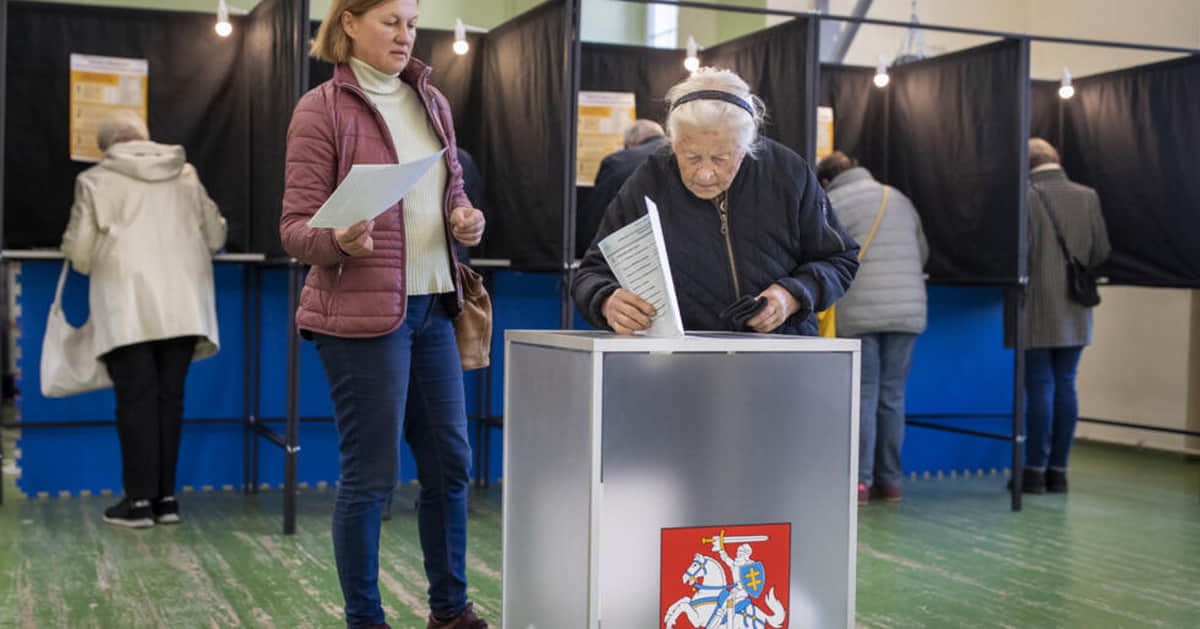What risks do the elections in Lithuania pose for Ukraine?

Lithuania is rightfully considered one of Ukraine's most dedicated and consistent allies. All mainstream political parties in Lithuania are traditionally pro-Ukrainian. However, this year's parliamentary election may surprise us.
Read more in the article by Yurii Panchenko, European Pravda editor - The pro-Ukrainian coalition loses but doesn't surrender: What the elections in Lithuania showed. In the first round of parliamentary election, 70 MPs have been elected from multi-member constituencies in Lithuania. The Social Democrats won 18 seats, the ruling party Homeland Union - Lithuanian Christian Democrats (Conservatives) received 17 seats and Dawn of Nemunas secured 14 seats.
Advertisement: Thus, the ruling party avoided the crushing defeat predicted by pollsters. Other parties entering the new Seimas include Union of Democrats For Lithuania (8 seats, 9.24%), the Liberal Movement (7 seats, 7.7%) and the Lithuanian Farmers and Greens Union (6 seats, 7%).
In total, there are 141 seats in the Lithuanian parliament. Another 71 MPs will be elected in single-member constituencies. Eight of them were already elected in the first round, while the rest will be elected in the second round on 27 October.
Although the results so far do not paint a complete picture, it is clear that all parties in the current coalition have lost popularity. According to the leader of the Lithuanian Social Democrats and potential prime minister candidate, Vilija Blinkeviciute, the country's highest-rated party does not rule out forming a coalition with the anti-system Dawn of Nemunas, but not with the Conservatives. Although Blinkeviciute later clarified she is not ready to form a coalition with Dawn of Nemunas, there is a risk that a future coalition might have to compromise with this party, especially if it performs well in the second round.
The leader of Dawn of Nemunas, Remigijus Zemaitaitis, participated in Lithuania's presidential elections this spring and ranked fourth with about 9%. He managed to maintain this result despite a scandal where he voluntarily resigned from parliament after making controversial statements comparing Israel's actions to Russian aggression. Despite the scandal, Zemaitaitis' support in rural areas and small towns, the core electorate of Dawn of Nemunas, did not wane.
Unlike other radicals, Zemaitaitis has (at least in recent years) avoided openly pro-Russian statements. However, he advocates for restoring trade relations with Central Asian countries (without explaining how this would be possible amidst the conflict with Russia) and preparing for the normalisation of relations with Lukashenko's Belarus, suggesting that Belarusian opposition members should be expelled from Lithuania. For Lithuanian Conservatives, this is enough to label Zemaitaitis as a pro-Russian radical, even more dangerous than overt "friends of Putin."
Could a change in government lead to a shift in Lithuania's foreign policy? No. However, there are reasons to believe that a new government may not show the same level of enthusiasm and commitment as the current one under Prime Minister Ingrida Simonyte.
If you notice an error, select the required text and press Ctrl + Enter to report it to the editors.